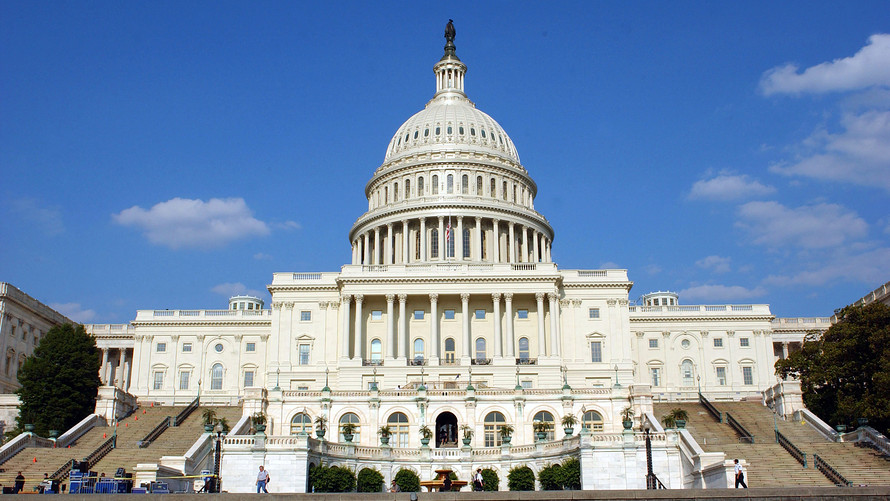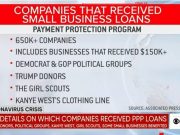On December 16, 2015, Democrats and Republicans in Congress struck a deal on omnibus spending and Tax Extenders legislation. Lawmakers should be lauded for including seven provisions in these bills that protect or enhance First Amendment free speech and free association rights, including the constitutionally-protected right of private giving to advocate for social change.
Specifically, the most important provisions in these bills prohibit the Internal Revenue Service (IRS) from issuing new regulations restricting the political speech of nonprofit groups, permanently prevent the IRS from taxing donors’ contributions to nonprofit advocacy groups, labor unions, and trade associations, forbid the Securities and Exchange Commission (SEC) from issuing new regulations mandating reporting of donations to trade associations and tax-exempt groups, and bar the President from issuing an executive order mandating the reporting of political contributions from those applying for government contracts.
The provisions in the Omnibus are temporary since the bill only covers spending through September 30, 2016. The pro-free speech provisions in the tax extenders legislation are permanent.
The following Legislative Brief explains why each of these provisions helps to protect free speech:
1) The Omnibus (Section 127 on page 472) prevents the IRS from writing new regulations to limit political speech by nonprofit groups for Fiscal Year 2016.
- The IRS is a tax collection agency with little understanding of First Amendment rights, and should not be tasked with policing speech. Previous efforts by the Service to act as the speech police resulted in the IRS targeting scandal – in which the agency systematically harassed and subjected to delay many groups applying for tax-exempt status so that they could more effectively participate in political and issue debates. Ideally, the IRS should be taken off the speech police beat permanently. If that is not possible, however, then new regulations that respect First Amendment rights are needed to improve the current vague rules that helped create the scandal. Unfortunately, this Administration has demonstrated it is incapable of writing reasonable regulations on this topic. Freezing the current regulations is the best available alternative and would prevent additional damage to free speech rights.
- The IRS’s most recent proposal to rewrite the rules for nonprofit political speech was withdrawn after it drew overwhelming bipartisan opposition from groups with widely varying ideologies, according to an extensive review by the Center of comments filed on the IRS’s proposal. A staggering 97 percent of commenters opposed, in some manner, the IRS’s attempt to regulate in this area, describing the rule as “overbroad,” “speech-chilling,” and “having no effect on revenue.” Despite such vast opposition, the agency was prepared to propose new rules that reportedly would have applied to even more tax-exempt groups, like labor unions and trade associations.
2) The Tax Extenders bill (Section 408 on page 215) permanently clarifies that the IRS should not apply the Gift Tax to donations to any nonprofit organization.
- Applying the Gift Tax to donations to nonprofit groups would necessarily chill the ability of individuals to freely associate with such organizations and lead to less speech, both political and otherwise. Nonprofits play a crucial role in American society by allowing individuals to speak with one voice. Taxing those donations would unconstitutionally limit that voice.
- Applying the Gift Tax to social welfare (501(c)(4)) nonprofits makes no sense. Current law already clearly states that donations to charitable (501(c)(3)) organizations and political (527) organizations are exempt from the Gift Tax. Logically, social welfare organizations, which combine features of charities and political groups, should also be exempt from the tax.
- Applying the Gift Tax to nonprofits would disproportionately harm small, often volunteer-run groups. Frequently, such small organizations rely on the generous donations of a few (or even single) benefactors. As such, small organizations would feel the pain of a tax more acutely, and would be more likely to close their doors if this policy were implemented. Removing these valuable voices from public discourse is unwise.
3) The Omnibus (Section 707 on page 1,982) bars the SEC from writing regulations in Fiscal Year 2016 mandating that companies report to the agency their contributions to tax-exempt organizations, dues paid to trade associations, or political contributions.
- The SEC’s mission is to maintain fair and efficient markets. The agency has no expertise, and therefore no business, policing speech about government or support by various businesses for trade associations or other tax-exempt organizations. Similar efforts to regulate speech by non-expert agencies, such as the IRS and the Federal Communications Commission, ended badly.
- Efforts to pass these reporting rules would enable groups opposed to pro-business speech to pressure donors to cut their funding to trade associations. This is not a legitimate use for government reporting requirements.
- Support from companies to trade associations should be encouraged, not discouraged. Trade associations provide a valuable and unique voice about government policies for their members. Recent polling shows that Americans expect companies to advocate for policies that lower their costs and benefit their workers, and trade associations are a strong avenue to pursue such advocacy.
- Political contributions from corporations are already disclosed to the Federal Election Commission and similar agencies at the state level, so any SEC-mandated reporting on these contributions would be duplicative.
- Harming speech by trade associations and corporations hurts companies’ bottom lines, and is contrary to the SEC’s mission to protect investors. Studies of similar regulations enacted in the United Kingdom demonstrated that this policy causes greater stock-return volatility and lower returns from corporate investments.
4) The Omnibus (Section 735 on page 589) blocks the President from issuing an executive order in Fiscal Year 2016 to require government contractors to report their political contributions as a condition of bidding on a contract.
- Such an order would make it easier for contracts to be awarded or denied based on political contributions rather than merit, value, or efficiency. Such actions would chill political speech and provide incentives to support speech that a corporation opposes.
- The paperwork burdens involved in such reporting would increase the costs to bid on such contracts, punishing taxpayers. Likewise, fewer bids might also be submitted, making the contracting process less competitive.
- Previous efforts to expand contractor reporting requirements were abandoned after meeting bipartisan opposition, including from then-House Majority Leader Steny Hoyer (D-MD), who said “I think the issue on contracting ought to be on the merits of the contractor’s application and bid and capabilities… I think there is some serious questions as to what implications there are if somehow we consider political contributions in the context of awarding contracts.”
- Contributions to candidates and political parties, as well as independent expenditures, are already disclosed to the Federal Election Commission or similar state agencies.
5) The Tax Extenders bill (Section 402 on page 207) permanently prevents IRS employees from conducting government business through private email addresses.
- During investigations into the IRS scandal, it was discovered that some agency employees were using personal email accounts to conduct government work. This provision would help prevent that behavior, and make it less likely that the IRS could violate the privacy rights of tax-exempt groups by using insecure email accounts that could trigger inadvertent disclosures of private tax information. If the IRS again fails to fairly administer the tax-exemption provisions, this provision will allow investigators easier access to government email records.
6) The Tax Extenders bill (Section 406 on page 214) permanently allows nonprofit groups to appeal determinations of their tax-exempt status in court.
- If the IRS denies an application for tax-exempt status, current law only allows 501(c)(3) charities to challenge the agency’s determination in court. This provision would sensibly extend that right to groups applying for other tax-exempt statuses.
7) The Tax Extenders bill (Section 407 on page 215) permanently mandates that any IRS employee who is discriminating against individuals or organizations based on their political beliefs must be fired.
- One of the many lessons of the IRS scandal was that agency employees were nearly immune from repercussions for engaging in behavior that targeted groups applying for tax-exempt status. This provision makes clear that any employee engaging in political discrimination in any form at the IRS is violating the First Amendment rights of citizens, and must be terminated.
https://www.ifs.org/wp-content/uploads/2015/12/2015-12_Free-Speech-in-Omnibus-Tax-Deal.pdf














